Fieldwork
This listing expired on November 1, 2019. Please contact info@ifrglobal.org for any updated information.
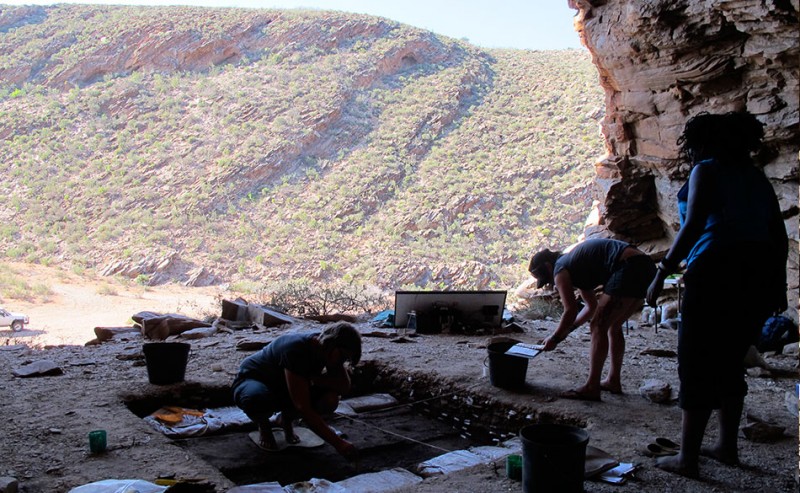
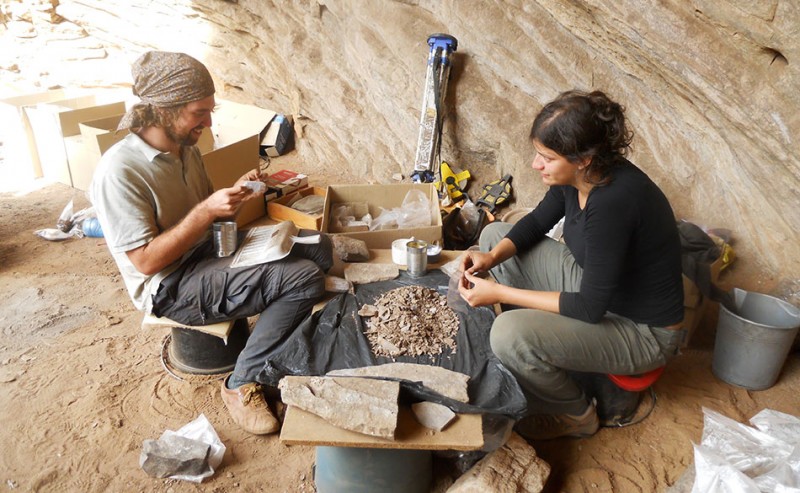
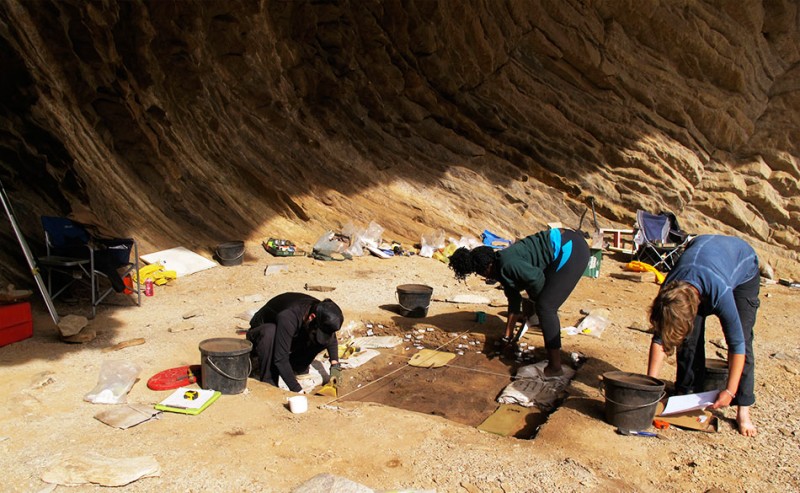
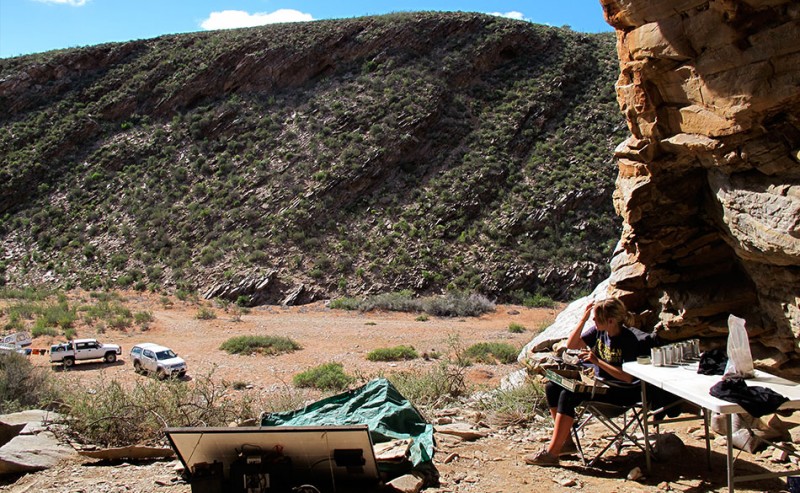
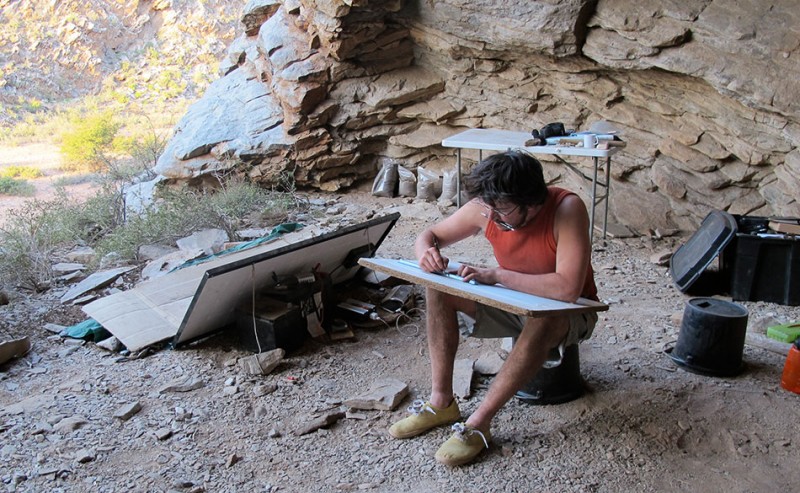

Location: Namaqualand, ZA
Season: July 7, 2019 to August 8, 2019
Application Deadline: April 5, 2019
Deadline Type: Rolling
Website: http://ifrglobal.org/program/south-africa-spitzkloof-b/
Program Type:
Field school
RPA Certified:
no
Affiliation:
University of Toronto Scarborough, University of Michigan, Connecticut College, Institute for Field Research
Project Director:
Dr. Genevieve Dewar, University of Toronto Scarborough, and Dr. Brian Stewart, University of Michigan
Project Description:
Spitzkloof is a series of three neighboring rockshelters in the Richtersveld region of Namaqualand, a coastal desert in the northwest corner of South Africa. Namaqualand is a semi-arid southern extension of the Namib Desert of Namibia. Extremely rugged and remote, the Richtersveld is known for its spectacularly strange and desolate landscapes, its extraordinarily diverse plant and animal life, and, though the local inhabitants are generally impoverished, its immense mineral wealth. Transhumant pastoralists, the descendants of whom still live here, thrived in this landscape for some 2000 years. Until last century, the region was home to desert-dwelling hunter-gatherer groups for at least 60,000 years. The three Spitzkloof Rockshelters – designated A, B and C – form the ‘backbone’ of our research in Namaqualand. The goal of the 2019 field season is to continue excavating Spitzkloof B and to conduct archaeological and geomorphological surveys in the surrounding area.
Period(s) of Occupation: Mesolithic & Paleolithic
Project Size: 1-24 participants
Minimum Age: 18
Experience Required: No experience required.
Room and Board Arrangements:
Cape Town –In Cape Town, students will stay at ‘The Back Pack’ situated in the heart of the city. The Backpack has an airport shuttle that will collect you directly from Cape Town International Airport. The Backpack is an approximately 20 minute drive from the airport. We will stay at the same venue on the night that we return to Cape Town from the site (Aug 7th). Spitzkloof – On site, where the majority of the field school will take place, we will be camping. You will be required to bring your own tent, sleeping bag, air mattress etc. You will receive an information package before we leave detailing the equipment for which you will be responsible. We bring all food and water for drinking/washing into the field. This is a rugged, isolated desert environment with absolutely no supermarkets or stores in the immediate area; the closest supermarket is a 1.5 hour drive away over rough terrain. We thus cook our own meals in the field. We take turns cooking and doing the washing up, allowing budding chefs an opportunity to wow us all. We have also built our own rock-and-sand pizza oven at the site (it works!) that we use on Sunday evenings. We eat very well with typical meals consisting of risotto, pasta, curry, pizza and even calzones. As we do not have a fridge, most meals are vegetarian with the exception of tinned tuna and dried meat (jerky, known locally as biltong). We do, however, have the occasional barbeque (meat and/or fish) on days we return from town with fresh produce and water (approximately once per week). Those who enjoy milk in their coffee/tea will also be happy to know we do have long life milk in camp. We can accommodate vegetarians, people with lactose intolerance, or who require Halal or Kosher food. Toilet and shower facilities are very basic but functional. Our toilets are frequently renewed, open-air (but secluded) long-drops. We wash using solar showers to heat water, which everyone should bring. There is enough water for everyone to wash at the end of every workday. Cost: All room and board costs are included in tuition.
Academic Credit:
8 Semester Credits credits offered by Connecticut College. Tuition is $4,880.
Institute for Field Research
2999 Overland Ave. #103
Los Angeles
CA
90064
United States
Phone: 8778394374
The AIA is North America's largest and oldest nonprofit organization dedicated to archaeology. The Institute advances awareness, education, fieldwork, preservation, publication, and research of archaeological sites and cultural heritage throughout the world. Your contribution makes a difference.